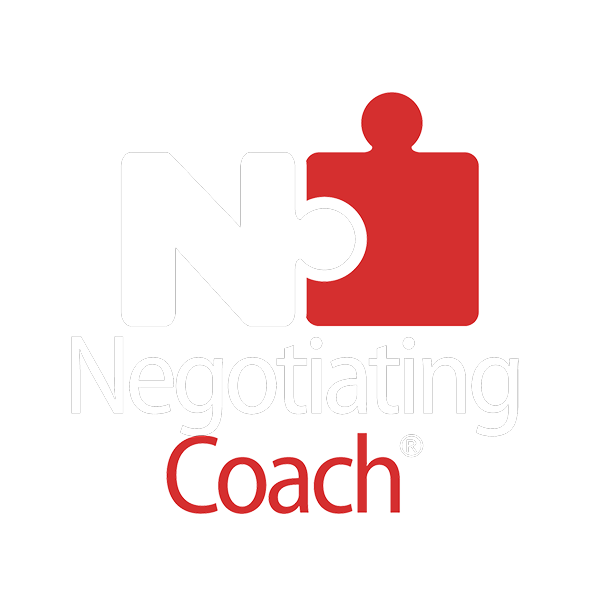How to Successfully Negotiate Price Increases in Any Economic Climate
How to Successfully Negotiate Price Increases in Any Economic Climate
Mastering the Art of Profitable Negotiation: Securing Price Increases
In today’s economic upheaval, businesses face a perfect storm of inflationary pressures and supply chain complexities. Savvy customers, wielding public opinion as a shield, deter vendors from enacting necessary price increases, creating a stifling predicament for sales teams and marketers across every distribution channel.
This intricate web of challenges leaves many companies feeling hamstrung, caught between market demands and the imperative to manage costs. The result? A labyrinth of obstacles hinders essential price increase negotiations in these turbulent times. It’s a complex landscape, and some salespeople and sales managers opt for the safety of the status quo, seeing negotiation as a daunting maze.
But here’s the truth: successful negotiation in these circumstances isn’t just about the price; it’s about preparation, strategic messaging, and impeccable negotiation prowess. How can sales managers and teams break through these barriers? What strategies can empower them to secure vital price increases confidently? My latest article in the Negotiating Advantage delves into these pressing questions, offering actionable insights and proven tactics to navigate these stormy waters successfully.
In the current economic landscape, inflationary pressures and intricate supply chain challenges have created a tumultuous environment for most businesses. Unfortunately, some governments try to intervene to curb the current inflationary trends and mitigate the increased cost of living for consumers. Shrewd customers, in all distribution channels, often use prevailing public relations pressure to discourage or restrict vendor companies from implementing necessary price increases.
These interdependent variables and moving parts create a climate where most companies, sales managers, salespeople, and marketing departments feel constrained in securing vital price increases from their customers across all channels. This scenario presents a formidable dilemma, where businesses must navigate the delicate balance between responding to market forces and pressure to manage cost/price containment – making it increasingly arduous to negotiate essential price increases with customers in challenging times.
Effectively navigating and negotiating necessary price increases can be perceived as “complicated,” – which can cause some companies to maintain the status quo regarding pricing. Successfully selling in and negotiating price increases requires thorough preparation, strategic tools/templates (carefully written price increase letters with the supporting rationale that pre-empts potential customer objections), and excellent negotiation skills.
CONTINUE READING ... SUBSCRIBE TO UNLOCK THE COMPLETE ARTICLE
Gain access to our library of complete articles that contain proven negotiation strategies, tips, and expert insights when you subscribe.
Enhance your negotiating skills and achieve better results!
Selling and justifying price increases to customers in a challenging economy and intricate market conditions can pose significant hurdles for sales and marketing personnel who lack adequate negotiation skills training, and turnkey tools. However, despite the challenges, negotiating price increases often is vital to sustaining a company’s overall profitability.
Also, customers will likely leverage their constantly improving negotiation skills and ‘situational power’ to counter or reject proposed price increases from vendors. Hence, sales management, sales, and marketing teams must consider the following two points when gearing up for price increase discussions:
Understanding the Customer’s Perspective:
- Assess whether the customer’s resistance to a price increase stems from a ‘belief system,’ strategic stance, or company policy.
Recognizing Negotiating Tactics:
- Determine if customers employ conscious negotiating strategies and aggressive tactics to test the vendor’s resolve. Will the vendor concede to monetary or other concessions under negotiating pressure?
The difficulty in selling and negotiating price increases during challenging market conditions often arises from differing perspectives between a company’s sales/marketing personnel and customers. Customers typically raise strong objections, issue threats, and employ aggressive negotiating tactics to resist price increases. Customers often use tactics like the Higher Authority or the Hot Potato Gambits to control the decision-making process in their favour. Most salespeople don’t know how to recognize these gambits or how to counter their use.
Undoubtedly, most salespeople and sales managers have encountered one of the following statements from customers expressing hesitancy – or outright refusal regarding price increases:
Customer Response One: “You know the current economic and inflationary situation as well as I do. This is not the time to try to pass on any price increase. The market is soft, and increasing prices will only hurt your company’s sales with us. Several competitors would be interested in capturing your market share and growing their business with us. Let’s wait six months and revisit the situation when the economy improves. If you insist on implementing a price increase, you’ll force us to reassess the category and your current position with our company. A price increase in this situation seems like a risky move on your part.”
Customer Response Two: “Given the current economic situation and inflation, implementing a price increase now seems risky for your company. We won’t accept vendor price hikes, irrespective of circumstances, especially considering cost of living and inflation issues.”
Customer Response Three: “Have you not read the news about the cost of living and inflation for consumers? We aren’t accepting price increases from any vendors. Your company’s higher cost structure isn’t our problem.”
All vendor organization members must understand that effectively selling and negotiating price increases is indispensable across all industries.
One of the Seven Strategies to Bolster Success in Selling and Negotiating Price Increases:
- Cultivating the Right Mindset and Improving Self-Confidence: Sellers must acknowledge that customers rarely react positively to price hikes. However, a salesperson’s confidence and belief in the value of their products/services outweigh concerns about competition or customer redirection. Confidence is critical in achieving a favourable outcome when negotiating price increases.
Companies might not leverage improved business results with their customers because salespeople need more confidence to aim for their maximum plausible position (MPP) during price increase negotiations. Building confidence in the product/service and its benefits empowers salespeople to seek their desired outcome confidently.
The process becomes inherently challenging if sales, management, or marketing teams don’t have a positive mindset or the necessary confidence to sell and negotiate a price increase convincingly. Becoming a proficient negotiator is a learned skill, and skill-building requires ongoing refinement.
Unfortunately, I can’t give away all of my ‘how-to’ secrets for negotiating price increases in this article. If you want to learn more about the other six proven strategies and tactics to negotiate customer price increases, hire me as your negotiating coach.
In this article, I’ve touched upon only one strategy to help negotiate price increases. Hire me as your dedicated negotiating coach to delve deeper into these proven strategies and tactics to gain a comprehensive understanding.
As your in-house negotiation expert, I’ll help you and your sales/marketing team navigate the intricate landscape of negotiating price increases across various channels and industries, which is pivotal for your company’s profitability and success.
When you engage my services, you’ll:
- Master Preparation and Planning: Gain insights on meticulously preparing for price increase negotiations.
- Harness the Power of Messaging: Craft compelling, results-driven price increase letters that yield favourable outcomes.
- Effectively Counter ‘Situation Power’ and the Higher Authority and Hot Potato Gambits: Learn tactics to manage and counterbalance customer leverage during negotiations.
- Utilize Blueprinting Questions: Employ powerful questioning techniques to secure successful price increases.
- Handle Objections with Finesse: Pre-empt and effectively counter customer objections during negotiations.
- Unlock Strategic Secrets: Discover my one exclusive question that significantly enhances your success in securing price increases.
- Leverage Effective Strategies and Tactics: Master key negotiation strategies like the Higher Authority Gambit and its countergambits for fruitful discussions.
- Strategically Position Price Increases: Understand the art of determining the ideal price increase and adeptly presenting it to customers.
For a comprehensive grasp of these vital negotiation strategies, let’s work together to enhance your negotiation prowess and achieve improved outcomes.
Take Action and Invest in Our Expert Negotiating Training and Negotiation Coaching Packages, Negotiation Tools, and Online Course to Become a Better Negotiator.
» Negotiating Skills Training: Book a tailored in-house presentation, seminar or learning workshop for your organization.
Speaking Engagements – Industry Associations and Companies: Book a tailored, engaging, and impactful 60-minute to two-hour presentation at an upcoming meeting, conference or convention.
» Negotiating Coaching Packages: If your company is facing a challenging high-value negotiation and you need an expert to help you or your team – or you own a small business – or you’re an individual who needs practical negotiation advice, you can benefit from my investing in one of my three proven, results-producing negotiation coaching packages for individuals, small business owners or corporations.
» Digital Negotiation Learning Products: You can purchase my three E-books containing powerful strategies and tips. E-books: Forensic Blueprinting Questions For Effectively Selling and Negotiating Price or Fee Increases and Managing the Price-driven Sale, Selling and Negotiating Price or Fee Increases in Any Economic Environment, and Strategies and Tips on How to Effectively Manage the RFP/RFQ/RFI or Bid/Tender Process to Optimize Results and Outcomes.
You can also purchase the Negotiating Personality Type and Corresponding Negotiating Style Self-Assessment Questionnaire and Interpretation Results and my NEW Digital MP3 “Greatest Hits” Verbal Negotiating Phrases, Scripts, Questions, and Questioning Techniques. These helpful tools are in digital format and can be easily downloaded.
I provide a discounted Master Negotiator Bundle with all my Digital Learning Products.
» Online Sales Negotiation Course: If you’re in sales, sales management or a cross-functional role that supports sales, you can benefit from enrolling in my NEW self-paced Negotiating for Sales Success online course.
» Meet Negotiating Coach® Michael E. Sloopka
No part of this copyright material can be used without written permission from Selling Solutions Inc.


